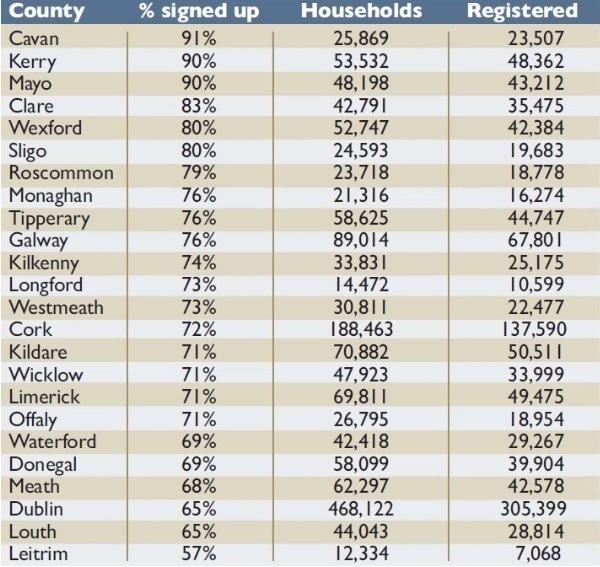Louth has the second lowest registration rate for water charges, according to new figures published in today’s Irish Examiner.
The figures reveal that just 28,814 of the 44,043 eligible households, or 65%, have registered to date.
That was on a par with Dublin, with only Leitrim (57%) having a lower rate of sign-ups.
The figures were obtained under the Freedom of Information Act from Irish Water and show the numbers registered across the 26 counties as of February 23rd.
Estimates on the percentage registered in each county were compiled comparing the Irish Water figures with the 2011 census data on private households from the CSO. The actual number of dwellings in each county is likely to be more.


